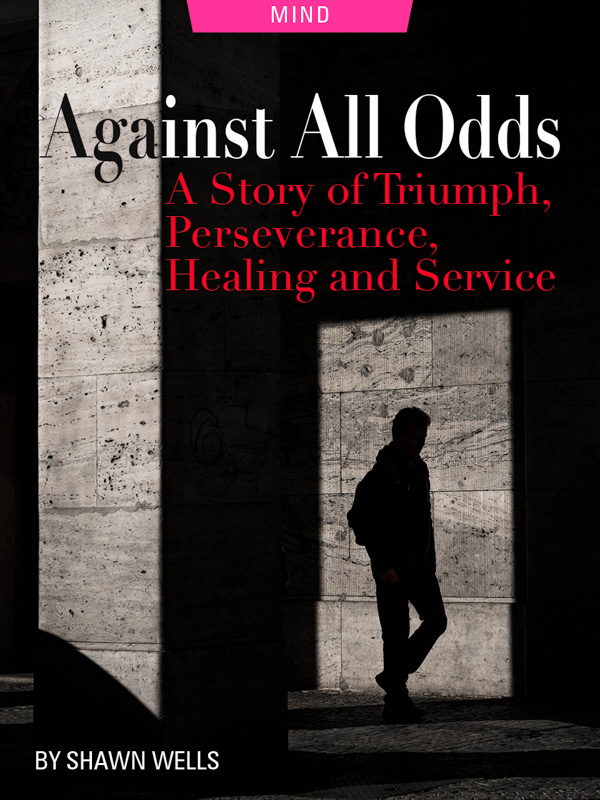
Once overweight and bullied, a Keto, fitness and supplement expert shares his journey of slaying emotional roadblocks and thriving
—
Growing up in the small town of Lenox, Massachusetts, I lived in a single-income home, was the son of an enlisted Navy father, and felt like I was often on the outside looking in on the wealthy and beautiful elite. You see, Lenox was a suburban tourist destination in the Berkshires that wealthy New Yorkers would visit to listen to the symphony at Tanglewood, watch plays at BPAC (Berkshire Performing Arts Center), hike at Canyon Ranch, and eat dessert at Cheesecake Charlies. Lenox had an air of affluence… heck, our school name was even pretentious—the ‘Lenox Millionaires,’ and I kid you not, the Monopoly guy was the mascot.
To make matters worse, I was always the ‘fat kid’.
I was pretty smart, but when it came to sports in gym class and at recess, I was usually picked last. Girls never passed me letters, exchanged looks with me, or whispered to other girls about asking me out; nope, they would whisper the types of things to each other that made them laugh. And, of course, the popular boys would join in.
I remember waiting at the school bus stop, dreading what the day would bring and the cruel things they would say… ‘Fat ass,’ ‘You fat fuck,’ Sit down fat ass’.
Even teachers would point out my weight and laugh — encouraging, if not instigating the bullying.
I felt ugly. I struggled to find any self-worth. I was not the alpha male like Glenn Hoff, who was exceptionally good at every sport. I was not the boy the girls were hoping to ask them to dance or to the movies — that was Ryan Thomas, the tall, handsome soccer star and salutatorian.
One thing I had going for me was that I was funny. Maybe that was my way of coping and deflecting the bullying. I got good at making people laugh, but there was a cost: my means of humor was always self-deprecating. Learning to make fun of myself — before others could was — my way of surviving, and in a strange way, connecting.
Medication of Choice: Junk Food
Deep down, I lived with pain. I didn’t take drugs, watch porn, or drink alcohol to soothe the aching. Instead, just a kid trying to make it in the 80’s,
I self-medicated with soda, candy, chips, junk food, and video games.
You guessed it, this only made my struggles with my obesity worse, and any short-term relief was fleeting, as it compounded the depression.
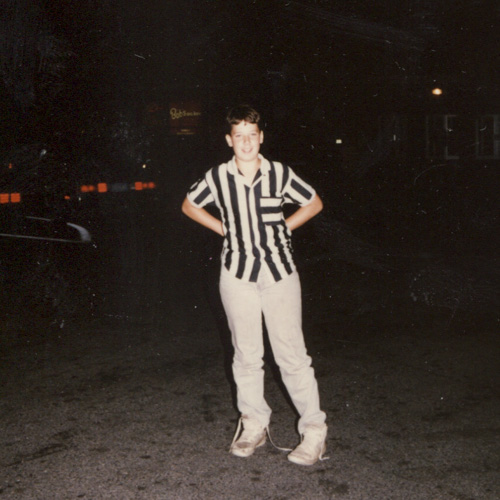
On top of that, I had acne. And when I say I struggled with my weight, let me make something clear: I wasn’t just fat, I had a large rear end —fat ass, as they called me. Scientifically, it’s known as a ‘gynoid fat distribution,’ a ‘pear’ shape that’s more common among females than males. But that was me. Skinny up top, disproportionately fat in the butt and legs — so much so, in fact, that my legs would rub together. And the short shorts they gave me for gym class… well, they took the laughing from snickers to uproariously hilarity.
I also lived in a chaotic, broken home — my two older brothers ran away in their early teens. I needed my big brothers, but I struggled on… alone. Somehow, I managed to earn good grades — despite little confidence, crappy nutrition, and relentless bullying.
Fast forward to 1994, where two years after finishing high school, I found myself sitting in the office of Dr. Daniel Johnson, my physician, in Boston. I was there to get my physical before starting my junior year at Babson College, a top-ranked business specialty school in the Boston area.
Around that time, I had really begun to focus on getting healthier, and I had finally started losing some weight. I had been reading bodybuilding magazines, taking supplements, and trying to eat better. I was rambling on to Dr. Johnson about supplements I had been using and how helpful they had been. I was telling him how I was seeing the difference with this brand-new supplement, creatine, as well as whey protein isolate. I told him I believed that this industry will gain scientific rigor, grow tremendously, and someday, people will rely more on supplements and diet than medication.
The 20-80 Rule
Instead of scoffing and being dismissive like most doctors would have been, Dr. Johnson looked at me, square in the eye, and listened to me share my passion, and what he did next not only stunned me, it changed my life.
He quietly turned away, grabbed a piece of paper, and drew a line on it with two hash marks on each end, one at 20 (my age at the time) and one at 80. He said,
“Why not be happy between here and here” (referring to the 60-year span between the ‘dash’).
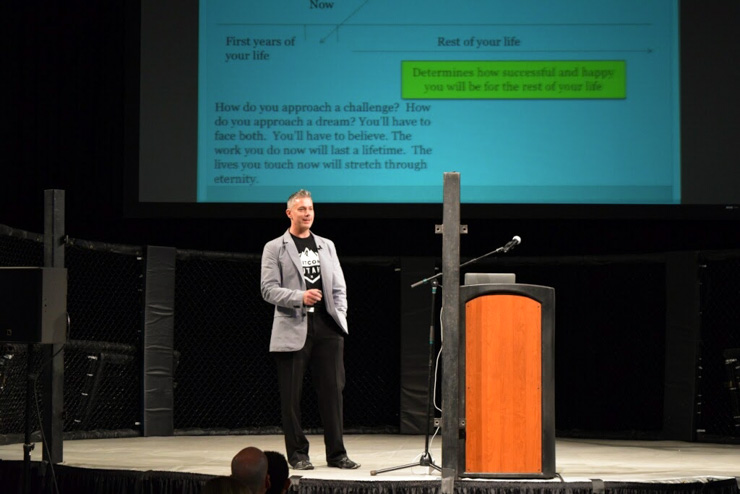
I was dumbfounded. Reeling. Emotions swirling. Did he just give me permission to pursue my dream, a dream I didn’t realize I truly had until he pointed it out? He could tell that I wasn’t as thrilled about the business school as I was about nutrition and supplements.
Mind you, this was before Instagram, Facebook, or even MySpace. We’re talking before Tony Robbins got popular, or Oprah hit her prime. At that time, no one in my life or around me on any level was encouraging me to ‘chase my dreams’.
And yet, here I was, feeling both free and overwhelmed with excitement all at once — all because a seemingly random person told me one thing — that I could pursue my dream. That ‘insignificant’ thing radically changed my life path.
If you take nothing else from this story, remember this:
You, too, with just a couple words — or even a simple gesture — can forever change someone’s destiny.
Dr. Johnson changed mine that day, and for that, I am eternally grateful.
Now, I live by the ‘20-80 Rule,’ and what I mean by that is that I am truly living ‘the dash,’ just like the famous Linda Ellis poem (about the meaning of the dash on one’s headstone). It’s really not about the years in life, but life in your years!
Formulating my Future
To become the best supplement formulator was the dream of this former overly fat-reared, bullied kid. What does that even mean you ask? I dreamt of creating the world’s most effective, cutting-edge, talked-about supplements that were not only rooted in good science, but more importantly, changed lives. Supplements that made you feel better, helped you gain more muscle, and actually helped you lose unwanted fat — real, life-changing results, not just hyped-up, empty promises. I had learned that supplements could help me save my own life, and down the road, I envisioned myself saving countless others.
What is a formulator, you ask? One who creates.
It’s an art that’s part chemistry and part visionary. It’s an extremely niche dream, as there are maybe a couple hundred people on the planet — maybe — who formulate supplements for a living.
The odds are already slim, but of that couple of hundred, to be the best — number one — it’s kind of a pipe dream. I told people about my crazy vision, and nearly every one of them laughed or shook it off.
“Be real,” they would say. Or, “Just go get a real job and stop running from the real world.”
For some reason, Dr. Johnson’s opinion and encouragement was all that mattered; it was all that I needed to pursue my dream. What he shared with me that day and the way he shared it made sense, and my brain and heart wouldn’t let go of it.
Darkness Creeps In… Again
The next step was making it happen. That meant going back to school to get my Master’s in Nutrition. How do I do this, I thought? My parents had moved from Massachusetts to North Carolina while I was at Babson. If I believed in this dream, I would have to fund it myself, achieve it myself, and be my own inspiration. My top choice was UNC-Chapel Hill — the best of the best.
To be accepted there, I would first need two straight years of sciences as prerequisites, and that led me to UNC-Greensboro where I visited a guidance counselor, let’s call him Mr. Smith (Honestly, I blocked his name out, but not his face). I told him with unrepressed zeal about becoming a sports nutritionist, a dietitian, and a supplement formulator, and I told him the school I wanted to attend to facilitate this.
Before I even finished saying Chapel Hill, he said, “You would need 26 credit hours of straight sciences a semester — with labs. This is not doable, especially for a business student. Why don’t you pick something more realistic? You’re not even that fit, if I am being honest.”
Devastated and angry, I left his office.
I spent that day spinning and wondering why… why does no one else but me and Dr. Johnson, who barely knew me, see it?
Worse than that, I felt like this was a ‘now or never’ situation, and I didn’t get approved for financial aid. It felt like I was going back to being that fat kid (though I was in much better shape than I was years ago) who was being bullied and would be sick for the rest of my life.
For two days straight, I contemplated suicide — my dreams shattered and out of reach. Ironically, the dream of capsules and pills was how I thought this nightmare might end as well… but not supplements. Instead, I looked at bottles of Tylenol and Aspirin and thought, “I will just take all of this, wash it down with some Pepe Lopez tequila, and slip out of this increasingly difficult world. No one will miss me. I am the ‘fat-ass fuck’ with a stupid, ‘unrealistic’ dream’. I was in a new city. No family. No friends. Certainly, no interested girlfriends. Alone. My dream crushed. I was dead inside.
Self-Talk Meets Real-Talk
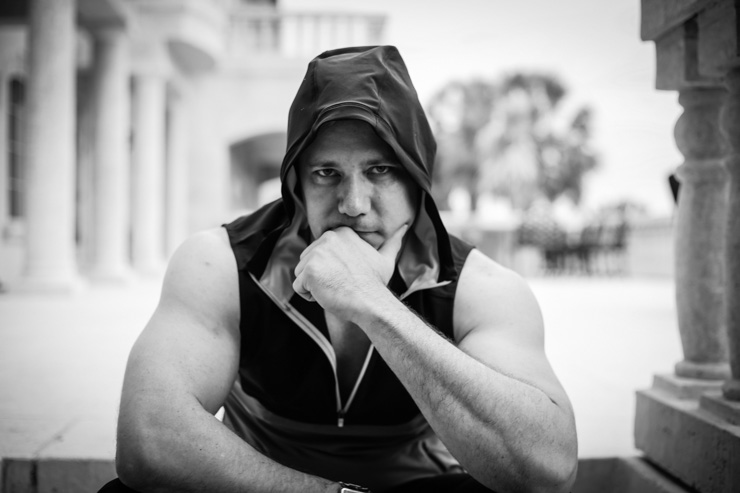
Contemplating those misery-ending bottles and having the guidance counselor’s voice play over and over in my head made me feel empty, untalented, and worthless.
Then, Dr. Johnson’s voice came roaring in like a torrential summer thunderstorm in North Carolina. He not only gave me permission to dream big in the first place, on that night, he unknowingly might have saved my life.
Echoing in my head (and finally drowning out that wretched, pathetic guidance counselor) was Dr. Johnson’s encouraging voice, “Why not be happy between here and here?” Yes. I will try. I will do it. If I fail, I will revisit this idea of ending my life, but I felt I had this turning point of ‘now or never’ meets ‘why not’. I said to myself (literally out loud):
Maybe, just maybe I can actually be happy. It’s a shot in the dark, but I could… maybe.
I got up, put the bottles down, and emerged a man reinvigorated. I had gotten my spark back, and now it was time to fan those flames.
The next morning, I went into the office at UNC-Greensboro, put the full semester’s tuition on my credit card, and I went ‘all in’ with a double class load. Here’s what stared me in the face: Chemistry 1 & 2, Biology 1 & 2, Human Biochemistry, Plant Biochemistry, Nutrition, Exercise Physiology, Genetics, Anatomy, and more. For most students these days, that’s two, three, or even four semesters’ worth. Prerequisite classes to get into Chapel Hill were lengthy. I not only needed to take them, I had to ace them.
Two years later, in 1999, I finished at UNC-Greensboro with exemplary grades, kept up that course load, and got accepted into the school I had dreamed of as part of my path to becoming a nutritional biochemist.
One person sparked the flames of the inferno that was to become the World’s Greatest Formulator, and on the other hand, one person had the potential to be a crushing tidal wave trying to douse even the smallest spark of passion. You don’t think there is power in the things you say to others and the way you say them?
You don’t think there is power in the things you say to yourself? Think again.
In 2001, I had nearly wrapped up my master’s degree at UNC-Chapel Hill. I was almost a nutritional biochemist and Registered Dietitian; I had only two and a half months to go. I was getting offers to work in hospitals as the Chief Clinical Dietitian, a lofty position coming out of school. Physically, I was consistently working out five days a week, and I looked lean and fit. I finally looked the part. People respected me, and for the first time in my life, girls were attracted to me. Maybe I can do this was giving way to I did do this!
I Nearly Died
You know what’s crazy? It seems every time I’ve had a taste of success or overcome an obstacle, life hit back — another hurdle, another test. This time, it was mononucleosis — better known as ‘mono’ — which is usually caused by the Epstein-Barr virus. And while many know mono as ‘the kissing disease’, what many people don’t know is that Epstein-Barr can play a role in the development of auto-immune disease, which was beginning to shut me down.
My liver was swollen and pushing on my ribs. I slept 23 hours a day. My throat was swollen shut. I could only drink liquids. I felt like I was dying. I mean this by no exaggeration. Depression came back with a vengeance, and to be honest, I wasn’t sure I was going to make it. Extreme fevers and shivering went on for days, then weeks. Although I’ve never gone through it myself, I suspect this is not too dissimilar to what it may feel like to go through extreme withdrawal.
I was missing classes, but finishing my degree wasn’t my most pressing worry: I wasn’t sure I would even be alive another month. I couldn’t muster the energy to leave my apartment. I wasn’t eating a thing, and I was barely drinking.
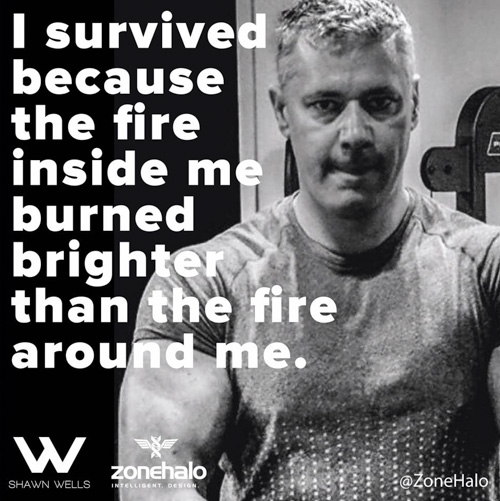
The best I could do was get ‘online’ (by dial-up, believe it or not), and it’s a damn good thing I did. In my search for new ideas and solutions.
I began reading about a diet called the Ketogenic Diet. From what I read, it could help with auto-immune issues and inflammation…
…at least that was the word from some trailblazers on message boards.
As I was able to begin eating some food, I decided to give this high-fat, very-low-carb approach a shot. I stopped buying processed foods — even the ‘healthy’ stuff, like ‘whole wheat’ breads, cereals, pastas, and the like — and kept to the outside ring of the grocery store where the whole, real food was.
Slowly, I started to regain strength, and with less than three weeks to go in the semester, my professors thankfully worked with me to help me stay on track. I finished up all my coursework and graduated.
Despite that feather in my cap, the fatigue, muscle cramps, brain fog, and depression remained unbearable — as they would for the next two years.
I continued to experiment with keto, on and off, from 2001-2003, and every time I strictly stuck to it, it seemed to help. As a matter of fact, as my body adapted and I became more active, I felt like I would see myself through all of this.
As I was in ‘survival mode’ — I put my dream of formulating supplements on hold.
While I was working fulltime in an uphill battle against chronic fatigue syndrome, brain fog, depression and fibromyalgia — the more I researched the ketogenic diet, nutritional ketosis, and ketone bodies — the more I became convinced that this was my solution to my health woes. I was turning the corner, and for once it seemed, the fans were flamed by the positive reinforcement around me. People who knew me online and in real life were inspired by my turnaround, and that was like a shot in the arm to me — creating greater drive and desire to get better so I could improve lives (including my own).
Advocate For Truth
I started getting back to my books, message boards, and research studies on dietary supplements, herbs, natural medicines, and tinctures. As I regained more and more strength, my evenings, weekends, and vacations would revolve around supplements.
Having a dream gives you strength. Having purpose gives you the will to go on — tired or not.
With my hospital and nursing home clinical practice experience, nutrition and biochemistry knowledge, personal struggles with weight which included an outright battle with autoimmunity — I felt empowered to serve others. Along those lines, I poured any ‘extra’ time into helping others on an anti-aging (LongeCity) message board as well as a board focused on sports and weight training (Bodybuilding.com).
I was an outspoken advocate for the truth, dispelling much of the marketing hype. I built up a reputation on the boards and started getting offers from reputable companies that appreciated my earnestness and knowledge. I had a Bachelor’s degree in Marketing and was accomplished in nutrition, so helping companies answer questions on their products, give advice to people trying to get healthier, and do product write-ups became a noteworthy ‘second career’.
I emerged as a significant player in the world of supplements as ‘ANDROGENIC’ (my message board name), which I chose because of the personal meaning it held: creating a better man. I was quickly becoming well-known throughout the industry. Of course, none of that paid much money, but that only fueled my desire to make this my primary job, as my reputation and respect grew in turn.
During that time, I also worked at two different GNCs and a place called Health Nutz in Monroe, North Carolina. I didn’t do it for the money — about $10 an hour — but rather, I loved looking at supplements, reading the labels, helping people understand them, and watching them achieve their goals when using them.
Best of all, when those folks came back into the store, they only wanted to talk to me — to get my advice, my recommendations, my coaching. The response I was getting from the customers was powerful, and it was affirming. I was the go-to expert in the clinics and hospitals, online on the message boards, and in the retail shop. I was gaining momentum and positively impacting everything I touched because…
I had found the key to fulfillment: the marriage of passion and purpose.
To level up my supplement and sports nutrition knowledge, I pursued and earned the prestigious CISSN (Certified Sports Nutritionist) credential through International Society of Sports Nutrition.
Doing the Right Thing
Things, however, weren’t all sunshine and rainbows. I was still experiencing nagging frustrations, particularly in hospitals and nursing homes, which are where I spent most of my ‘working hours’ as a Chief Clinical Dietitian. Despite being a Registered Dietitian (RD), Certified Sports Nutritionist (CISSN), and nutritional biochemist — who was an expert on food, nutrition, and supplements) — I could not order the diet or supplements I knew to be best per the research.
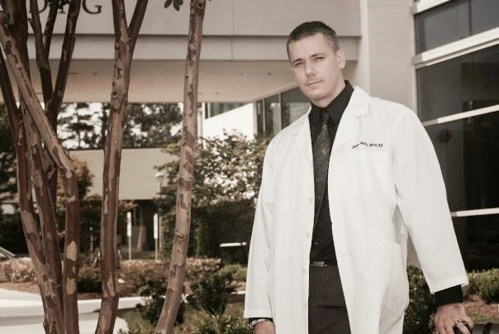
I was having to prescribe low-fat diets for people with heart disease, serve carbs all day long for type 2 diabetics, and on and on. If I didn’t follow Standard of Care (SOC), I could get sued, lose my license, lose my job, and be disgraced.
We had auditors constantly combing through our notes and orders, and the pressure was real. I struggled with so much ambivalence — I knew I could do better; I knew I should do better. For example, the facilities often wanted to provide cheaper, low-quality protein — instead of a high-quality whey, which I would have chosen for people who were sarcopenic (losing muscle), infected, had pressure ulcers, and worse.
I remember one conversation I had with the rounding physician where I wanted to put the residents on creatine to protect lean muscle mass. He said, “There’s no data on that. It’s not backed by science the way that medications are, which go through strict approval.”
“There’s 500+ studies on creatine. 500! There’s a couple of studies on medications, and they’re often re-done several times just so they can show positive results and pass FDA scrutiny,” I refuted.
Daily conversations and experiences like these made it clear that it was time to go out on my own so that I could make a greater impact, and more importantly, truly serve people. Little did I know that this epiphany was going to manifest within a week.
That Dream You’ve Had… It’s HERE… How Bad Do You Want It?
I was on a lunch break at a nursing home when I got a call on a hot and hazy North Carolina summer day while sitting in my car. On the other end of the phone, it was a recruiter, who said, “Shawn, I am looking to hire for this company in the Dallas area called Dymatize. They need a VP of R&D/Chief Science Officer there. Are you interested?”
For me, this was like a small stage actor getting a call for the lead role in a Steven Spielberg movie! I said, Yes. Yes, sir. I am interested!
Over the next three months, I went through nine rounds of interviews. I made it to the final round, and it was between me and a guy who had worked as a VP and C-level executive for companies like GNC and a slew of other massive supplement brands. On top of that, he was a published researcher, PhD, academic professor, had written book chapters, and had even been on TV.
And then there was me — another guy who also worked at GNC… at a retail register. I fought for patients in the nursing home, and I was a hero on message boards, but I didn’t have his level of respect. It was a classic ‘David vs. Goliath’ matchup.
I finally got the call from my recruiter, who said, “Hey, Shawn, they decided to go with the other guy.”
It made sense, given his resume — and I’ll be the first to say he was a rock star. Heck, I was in awe of him. Nevertheless, I felt dejected. There I was, so close to this incredible dream becoming a reality — the same dream my guidance counselor told me wasn’t ‘realistic’.
After a pause, the recruiter continued and boomed, “But I do have good news. They have a six-figure job waiting for you as Director of R&D, doing all of their formulations. This not only includes Dymatize’s products. They also private label for companies like Smoothie King, Advocare, GNC, and Vitamin Shoppe. Are you interested?”
Shaking, both holding back tears and laughing, I boomed back, “Yes. Yes, I am. Let me talk to my wife about this.”
Did I tell you I got married? Shelley somehow stuck with me through the health issues and all the work — 50 hours/week in healthcare and another 30+ hours in GNC and small supplement companies doing marketing, answering questions, doing cited scientific write-ups, and so on. Five years into our marriage, I still hadn’t taken more than a weekend off and even that weekend was very, very rare — maybe once or twice a year.
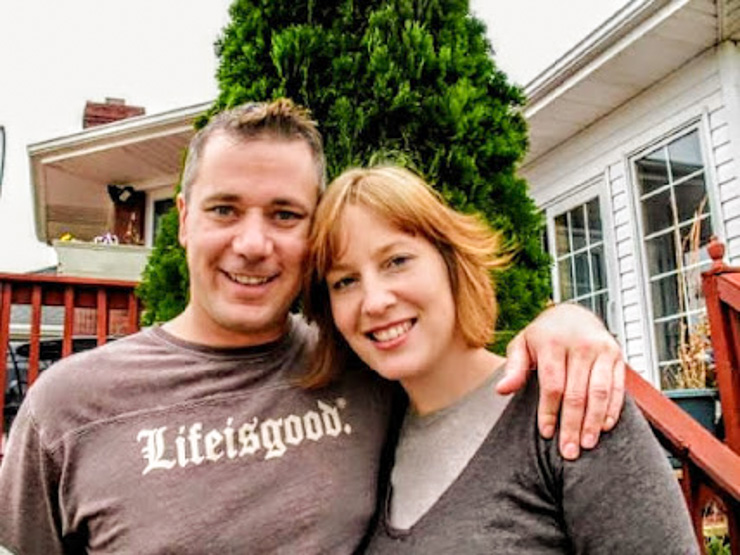
I was obsessive, but she understood. I sacrificed a great deal and so did she. She believed in me.
She saw the man she loved go from his virtual deathbed with deep depression to a man with passion and purpose. I talked to her that evening and said, “Will you move from Charlotte to Dallas? I would probably have to work even harder than I am now. I need to prove myself in this industry.”
And for the second time, Shelley said, “I do.” She gave me all the support I needed to take the next step in becoming a world class formulator.
This was it!
Dallas, Texas. 2011. I worked tirelessly at Dymatize. I’d come in at 7am and leave at 11pm. No one was going to outwork me. Why? THIS WAS IT. That’s why. I would have been a fraud if I didn’t. This was the dream, yes, but it was just the beginning.
I became an Employee of the Year, got raises, and became an essential person in the executive meetings, driving all of the formulations and new directions of the products. In time, I became a fellow of the International Society of Sports Nutrition and an Editor of their academic journal, the Journal of the International Society of Sports Nutrition (JISSN). I was now a published author (in academic text books and peer-reviewed journals), presented research at conferences, had award-winning, best-selling supplements on the very same shelves of the retail store I formerly worked in (GNC) and the website that helped build my reputation (Bodybuilding.com).
Everything was going my way, and I was playing in my very own field of dreams, until once again another nightmare emerged.
About two years into my job at Dymatize, I became sick again — fatigue, brain fog, depression. The same nasty cast of characters, and I wasn’t sure why. I had strayed from my ‘clean eating’ and keto protocols for about a year because I was so busy with work and travel. Stress was my norm, and even though I was a dietitian and sports nutritionist, I’m sad to say that I lived off Subway subs, pizza, M&Ms, diet Coke, and a laundry list of processed, fast, junk foods that are typical of the standard American diet.
There was something different this time, however. As I explained to my doctor, “These headaches are new. I’ve never had these headaches. There’s a pressure on my eyes that I can’t deal with. I have insomnia that seems to be getting worse by the day — despite my fatigue. I have zero libido as well.”
We ended up getting an MRI and some blood work, and my doctor said soberly, “Son, you’ve got a pituitary adenoma, specifically a prolactinoma. It’s a brain tumor.Even though it’s not cancerous, the pituitary is critical for your brain and your body. Furthermore, your testosterone is basically non-existent, and your estrogen is sky-high. I will be honest and tell you that even though it is not cancerous now, you have a higher likelihood of developing cancer in the future.”
Mentally, emotionally, and physically, it was yet another all-too-familiar moment that left me reeling and feeling fatalistic.
Hurdle After Hurdle
I cried. I felt like every time I achieved something — tasted success, overcame an obstacle — something was taken away.
I decided to go on an extremely strict ketogenic diet, and I started eating Paleo (as it was being called) again — focusing solely on real, whole foods. I got back in the gym five days a week, and I took my medication.
Slowly but surely, this recipe worked for me. I started to crawl back in to a livable 16-hour work day. I was thinking better, the headaches subsided, and my sleep improved. The follow-up scans looked great, and for the past seven years have remained the same.
With my new-found momentum, my experience continued.
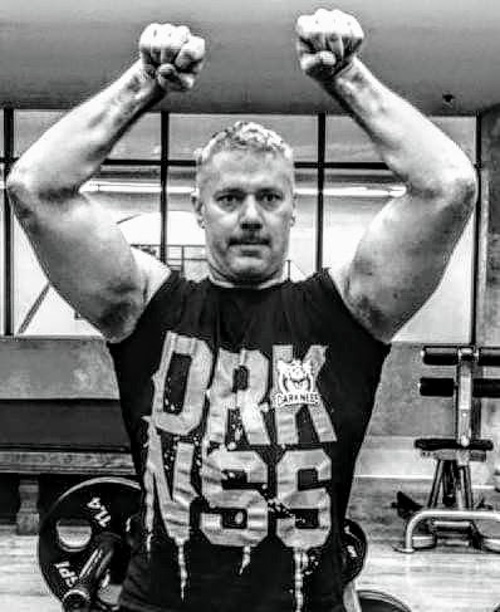
I had the opportunity to join a scientific dream team, along with Dr. Tim Ziegenfuss and Dr. Hector Lopez, and together, we patented TeaCrine and Dynamine, two of the most well-known and studied branded energy ingredients on the market. They are in more than 400 products worldwide including pre-workouts, energy drinks, nootropics (brain boosters), and fat burners. Nearly 20 studies have been done showing they are safe and effective. It’s quite a legacy.
Further, natural supplements superstar, BioTrust Nutrition, sought me out. Co-founder Josh Bezoni said, “We want the best. I have one person on my list, and it’s you. You are the one!” Joel Marion, the other co-founder, called me “the LeBron James of supplements.” These men are worth hundreds of millions, and they sought me out.
I accepted and became their Chief Science Officer, leading R&D, Quality Control, Regulatory, and Branding for BioTrust, which went on to more than double in size and revenue. It was a wild ride for BioTrust, and along with a great team, I played a tremendous role in the rocket ship growth and disruption of the industry.
This once laughed-at kid from Lenox, Massachusetts had achieved what was thought to be impossible and it felt good!
You CAN Change Lives
In 2017, I got a message on Facebook from a woman who said she’d been following me for years and loved the information I put out. I thanked her, yet I could sense there was more to the messaging than simply acknowledging my content and compassion.
She proceeded to tell me she had been taken off chemotherapy and radiation by her oncologist, and she had six weeks to live with her glioblastoma multiforme (GBM), which is a deadly brain tumor, and in her case, it had taken over about 40-50% of her brain.
She said, “I will be buried in the ground in a little over a month. Can you help me?”
I told her, “I am not a doctor, while I cannot give you medical advice, I can tell you what I would do in your situation. But before doing anything, consult your physician first.”
I told her a series of things I would do if I faced similar circumstances:
- Hyperbaric Oxygen Therapy (HBOT)
- Strict Keto (no net carbs, cyclical or targeted)
- IV Vitamin C twice a week
- 16-8 Time-Restricted Feeding/Fasting (she was obese and was a junk-food junkie, just like I used to be) — This means 16-hour window not eating and 8 hour window to eat.
- Paleo (whole foods only, avoiding sugar, processed foods, and allergens)
- Supplements for inflammation, like CBD and curcumin
- Mitochondrial health supplements like CoQ10 and PQQ
- Things that further raise ketones like exogenous ketone supplements and C8 MCTs
- Creatine and active B-vitamins like methylcobalamin (active B12) and 5-Methyltetrahydrofolate (active folate) for methylation
She messaged me a few times telling me she told her doctor, but he didn’t seem to care too much — almost as if it was all superfluous. After all, none of it compared to drugs or radiation (in his mind).
Well, six weeks later — she was the one laughing after she had her brain scanned again.
“Shawn… SHAWN… 80-90% reduction in my tumor… I am supposed to be buried in the ground, and I am living. I am ALIVE!”
I knew what I knew was powerful, but wow. Seriously WOW! “So, at any point, did any doctor talk to you about keto or any of the things I mentioned,” I asked her. “No one ever mentioned any of it,” she replied, still exuding joy over simply being alive!
This was validation: Now more than ever, I was so sure of my purpose.
From Fat Ass to Badass
My home and lab are now countless shelves that have hundreds of supplements, bags of powders, oils, and various beakers and devices.
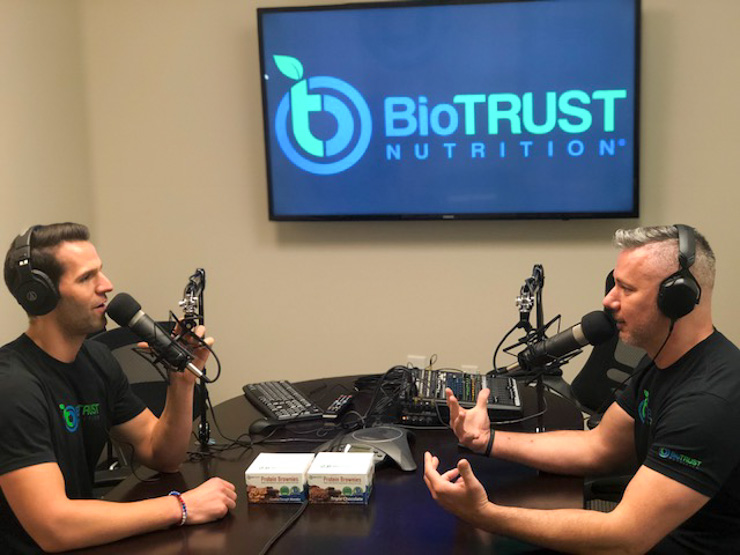
I’ve been ‘biohacking’ myself for decades, which is the process of making changes to your lifestyle in order to ‘hack’ your body’s biology and feel your best.
I use PEMF (pulsed electromagnetic fields), blue-light devices (in the morning), blue-light blockers (at night), NAD+ infusions, stem cells, supplements, medications, meditation, fitness and sleep trackers, and much more. It’s a story that I myself struggle to believe.
Over 20 years ago, I dreamed it. Now I am driving teams that help supplement companies through rebranding acquisition in the supplement space (Kwired), creating novel ingredients with patents (World’s Greatest Ingredients and Ortho-Nutra), and formulating the best products in the world (Zone Halo Research).
I have presented at nearly 50 conferences, formulated 500 products, patented several ingredients, published research, written chapters in textbooks, been a guest expert on a weekly national radio for six years (One Life Radio), been a guest on more than 100 podcasts of some of the most elite shows in the country (e.g. Ben Greenfield), I’ve spoken in nearly every state as well as internationally in countries like Brazil, China, England, and more.
I’ve been a worldwide advocate for keto for 20 years, and I’ve watched it go from, “Why aren’t you eating the bun?” to the most popular diet trend in the world. I am now known throughout the industry as the most elite name in supplements. I’ve been dubbed the ‘World’s Greatest Formulator’.
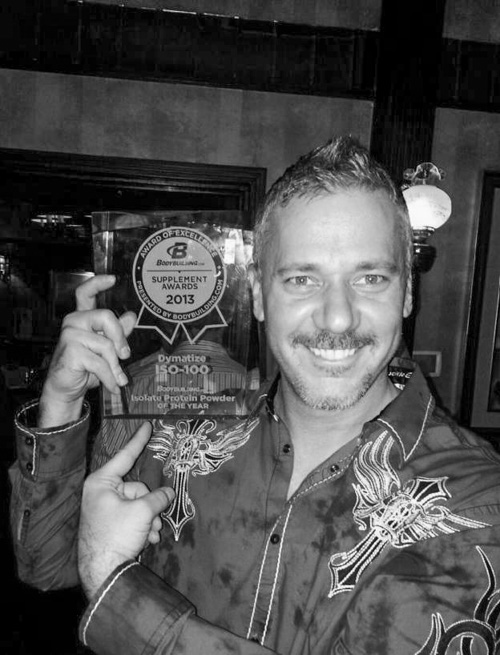
I did it. I really did it. I achieved that ‘unrealistic’ dream.
I didn’t do it alone though. I had so much help from people who inspired me, both directly or indirectly. I modeled them, worked for them, was mentored by them, and teamed up with them.
Hundreds of names could be listed here, but Dr. Rob Wildman, Dr. Hector Lopez, Dr. Tim Ziegenfuss, Dr. Jose Antonio, Dr. Jacob Wilson, Dr. Ryan Lowery, Michael Casid, Josh Bezoni, Joel Marion, Dr. Ralf Jaeger, Dr. Martin Purpura, Todd Tzeng, Ben Greenfield, Ben Pakulski, Kylin Liao, and Jaime-Lee Fraser are some of my mentors, employers, and business partners. Lewis Howes, Aubrey Marcus, Chris Winfield, Jen Gottlieb and Brent Sutherland have taught me a great deal and inspired my path as well with high-level masterminds and accountability. My brothers, Russ and Randy, my mother and father, Bob and Donna get recognition and love on my journey. And of course, my wife, Shelley, who believed in me and supported me despite my seemingly irrational focus on being the ‘World’s Greatest Formulator’.
Practically every day I am sent products from people wanting me to try or approve their ‘dream’ products. I’m not saying any of this for ego or self-promotion.
I’m saying that unwavering desire and focus can make anything possible.
I continue, not only having achieved my dream, but far surpassing it. The dream is now evolving, as I do. From ‘fat ass’ to ‘badass’, I am proud of who I’ve become, and even more, the lives I’ve touched.
That said, thanks are in order. Thank you to the thousands of patients, customers, readers, listeners, and viewers who have supported me and let me educate and help them. Thank you to Don Miguel Ruiz for writing the incredibly impactful book The Four Agreements, which freed me from self-torment. Thank you to the guidance counselor who told me I couldn’t do it; seriously, it strengthened my resolve. Thank you to that one rogue doctor who took an extra minute to encourage me, and without a thought, provided me that one kind act, that one drawing… I would have never pursued my dream, much less achieved it. Lastly, I am grateful for the illnesses I have struggled with many times in my life. Each bout strengthened my resolve and will to battle. Without that, I would never have my passion, care like I do, or connect deeply with anyone else fighting their own battles. I am blessed and thank you to you for having read my story… and you’re now a part of it.
You may also enjoy reading Adapt, Heal & Thrive: A Q&A with Dr. Chad Woodard by Bill Miles